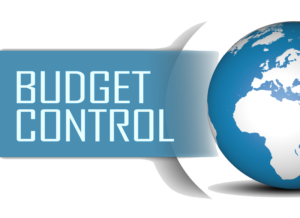Make transition to the post-Covid world easier
By Rawle Baddaloo*
Budgeting in the Maritime sector is not an easy task. A budget is basically a financial plan for a determined period. And although the industry has some predictabilities there are areas of uncertainty and the port sector is one of those.
What can Port Managers do to ensure that the budget works and does not require frequent changes and variations? If the budget doesn’t work, rest assured, the Board of Directors will be far from happy and the job atmosphere becomes uncomfortable.
A basic approach is to look at expenditure and revenue. Initiate discussions with your Revenue Centres, in this case your shipping lines, to try and predict cargo forecasts. In fact, the historical performance here is an excellent guide as to what revenue will look like.
Expenditure however is more difficult. Wages and recurring costs are straightforward. Here it calls for a close examination of what costs out of the norm will be incurred. In normal circumstance this would take some serious thinking and discussions however now in the Covid 19 era and the drive to ‘carbon free’ and reducing Green House Gases (GHG) the methodology has to be different.
The Covid 19 pandemic has been with us for more than two years. Port managers are therefore in a position to put numbers to this current cost. Averaging around 30USD per employee per month has been the number put out by some ports. This takes into account sanitizers, masks, thermometers, special personal protection gear.
 It does not take into account:
It does not take into account:
- Emergency situations
- Loss of man hours for quarantine (real)
- Loss of man hours for quarantine (fabricated)
- Cost of additional overtime
- Low productivity due to loss of regular labor
- Covid fatigue
It is not clear where insurance like Workman’s Compensation is affected with the workforce distributed in different places. The above, other than the fabricated loss of man hours, is straightforward. A situation developed where shift workers would report for duty with the information that they may have been exposed to the coronavirus when they visited someone. The overworked health facility would not take a test but, notwithstanding, recommended 21 days of quarantine. Thankfully managers have found ways to curb and even eliminate this unacceptable practice.
An explanation on additional overtime and low productivity will come about when the numbers of available permanent workers are fully utilized (depleted due to sick leave) and specialists are required to work overtime. The other routine job vacancies will be filled by casual or temporary workers who, because of their low employment rate, may not be up to the full efficiency level of the terminal. Care must therefore be taken here to ensure that these non-regular workers are fully briefed on all safety, security and health protocols.
Reliable output from an employee working from home calls for special self-discipline. The little that I have had to do with Zoom and other virtual platforms, meetings have been far from satisfactory. Participants generally do not pay full attention for multitasking. . And because the technology as used does not allow participants to easily read body language and thus spot commitment or lack thereof, the likelihood of spotting those individuals who are not likely to deliver is severely diminished.
Recurring issues
Coupled with the Covid 19 issues is the recurring environmental and climate issues. We will recall IMO 2020. I have said before the jury is still out on that but now, we have the pressing issues of zero emissions, decarbonization and reduction of Green House Gases. Additionally, many are predicting another recession in the USA. We know only too well how the Caribbean is impacted by matters affecting the United States of America. With trucker issues, poor location of empty containers, manufacturing issues regarding computer chips and sky rocketing fuel costs the future is going to be more challenging
The port must act whether the jurisdiction it is in is (or is not) fully up to speed. If the ports do not act and regulate, they may well be black-listed thereby creating an entirely new dynamic. An example may look like this. A mainline port that does not put in place the new requirements may be bypassed for becoming a transshipment port. Cargoes will be delayed. Costs skyrocket: freight rates have already gone past an 80% increase, will go up further; the country economy suffers; the cost of living goes up and so on.
Bear in mind that despite COP 26 and the not-too-great Marine Environment Protection Committee (MEPC) meeting that followed; major lines are now forming alliances to take their own action to reduce and remove pollution and all that goes with it. Ports falling within the operation of these lines are on notice. Beware. Other lines and alliances will follow.
Empty storage
Another area of concern and cost for the Port Manager is the question of empty storage. If for example the country is not a net exporter, empty boxes will accumulate. Besides these containers, being in the wrong place as far as the logistics chain goes, become a burden to the port as, for most ports, available land for storage is not infinite. Finding new storage areas, changing storage layouts all add to the cost of operations.
On top of that rests the normal day-to-day costs of operation. Accidents will happen that have world-wide implications. The Evergreen vessel stuck in the Suez Canal was a major one. The Maersk vessel in the North Sea recently and a host of smaller groundings and accidents all impact the logistic chain. If your port falls into that loop there are likely to be additional costs.
 These unexpected occurrences do make the job more difficult. The tangible occurrences then must be budgeted, with contingency plans in place for the unexpected. This is always a difficult sell to Managers but it must be done.
These unexpected occurrences do make the job more difficult. The tangible occurrences then must be budgeted, with contingency plans in place for the unexpected. This is always a difficult sell to Managers but it must be done.
We can be guided by the variances and eventualities I have addressed here. Yes, they cover a wide range of factors. Downsizing will affect budgets, just to mention one item. And again, one size will not fit all, so fine-tuning will be necessary. The Budget is the tool to guide operations for the upcoming period, so due diligence must be taken to ensure as far as possible all pros and cons are considered. Some operators put in figures in the event of contingencies. Contingency planning though may give the operator the feel of a cushion but it has limitations. More than ever there must now be quarterly reviews. Depending on the volume of traffic reviews may be needed more often.
A redefined marketing strategy must ensure that current port users and possible new callers are visited and encouraged. It is a tough time for all including shipowners notwithstanding the high freight rates.
The pandemic is far from over. Who knows what comes next. Regardless, prudent operations at all levels must be observed. The road ahead is going to be more difficult but good budgeting, regular reviews and working closely with staff and customers will make the transition to the post-Covid world a lot easier for all. []
- First published: May 1, 2022

*Capt. Rawle Baddaloo, Past President of the Caribbean Shipping Association, is Co-leader of Caribbean Marine Environment Protection Association (CARIBMEPA).





